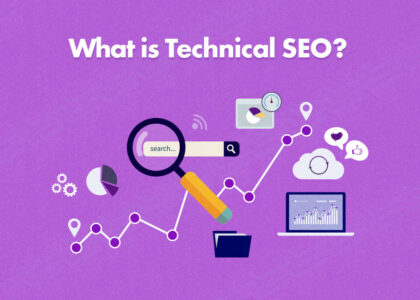In the vast and ever-evolving world of digital marketing, one term that frequently surfaces is SEO, or search engine optimization. SEO is a crucial practice that helps websites rank higher on search engine result pages (SERPs) and attract organic traffic. In this blog post, we will delve into the basics of SEO, its importance, and the key components that make it an indispensable tool for businesses aiming to establish a strong online presence.
What is SEO?
SEO, or search engine optimization, refers to the process of optimizing a website’s content, structure, and various other factors to improve its visibility on search engines. It involves understanding and implementing techniques that align with search engine algorithms, thereby increasing the website’s chances of ranking higher in relevant search queries.
Key Components of SEO:
- On-Page SEO:
On-page SEO focuses on optimizing individual web pages to improve their rankings and relevance on search engines. This includes elements such as keyword research and optimization, meta tags, headings, URL structure, image optimization, and content quality. On-page SEO ensures that search engines can understand and index your website’s pages effectively, improving their visibility to potential visitors.
- Off-Page SEO:
Off-page SEO involves activities performed outside of your website to enhance its visibility and reputation. The primary focus of off-page SEO is building high-quality backlinks from reputable websites, as search engines consider these links as votes of confidence. Other off-page SEO strategies include social media marketing, influencer outreach, guest blogging, and online reputation management. These activities contribute to establishing your website’s authority and credibility, ultimately boosting its search engine rankings.
- Technical SEO:
Technical SEO refers to optimizing the technical aspects of a website to improve its search engine visibility. It involves tasks such as ensuring website crawlability, optimizing site speed, implementing structured data markup, creating XML sitemaps, improving mobile responsiveness, and enhancing overall user experience. Technical SEO ensures that search engine crawlers can effectively navigate and understand your website, leading to better rankings and user satisfaction.
- Content Optimization:
Content optimization plays a pivotal role in SEO. Creating high-quality, valuable, and engaging content is essential for attracting organic traffic and satisfying user search intent. Content optimization involves conducting keyword research, incorporating relevant keywords into the content, structuring the content for readability, and ensuring it provides comprehensive and insightful information to users. Well-optimized content helps search engines understand the relevance of your website to specific search queries, resulting in higher rankings.
Why is SEO Important?
- Increased Visibility: SEO helps improve your website’s visibility on search engine result pages, making it more likely to be seen by potential visitors.
- Organic Traffic: By ranking higher in search results, SEO drives organic traffic to your website, ensuring that people who are actively searching for products or services related to your business find you.
- Credibility and Trust: Higher search engine rankings establish credibility and trust among users, leading to increased brand awareness, engagement, and conversions.
- Cost-Effectiveness: Compared to paid advertising, SEO offers long-term results at a lower cost, making it a cost-effective marketing strategy.
- Competitive Advantage: Implementing effective SEO strategies helps you outrank competitors and stay ahead in the online marketplace.
Conclusion:
SEO is the backbone of a successful online presence. By optimizing your website’s content, structure, and technical aspects, you can enhance its visibility, attract organic traffic, establish credibility, and gain a competitive edge. Understanding the fundamentals of SEO and incorporating its best practices into your digital marketing efforts can lead to significant growth and success for your business in the ever-evolving digital landscape.





